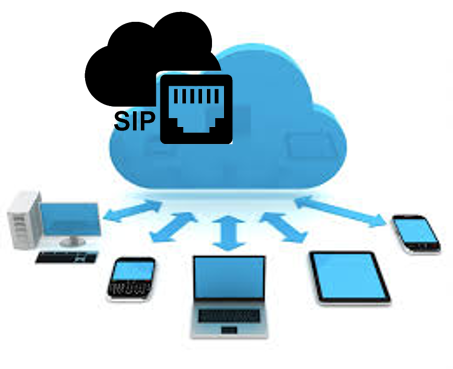Introduction
In the modern age of digital communication, Voice over Internet Protocol (VoIP) has emerged as a cornerstone technology for businesses worldwide. Among the various protocols governing VoIP, Session Initiation Protocol (SIP) stands out as a fundamental component. However, with the increasing reliance on SIP for voice and multimedia communication, ensuring network security has become paramount. This article delves into the significance of SIP and explores how Session Border Controllers (SBCs) play a crucial role in safeguarding network integrity.
Understanding SIP
SIP serves as a signaling protocol, facilitating the initiation, modification, and termination of communication sessions over IP networks. It enables various multimedia services, including voice calls, video conferencing, and instant messaging. SIP operates in a client-server model, where user agents initiate communication sessions by sending SIP requests to servers known as SIP servers or proxies.
The Importance of SIP Security
As SIP-based communication proliferates, so do security threats. SIP vulnerabilities can expose networks to a range of risks, including eavesdropping, identity theft, call interception, and denial-of-service attacks. Hackers may exploit weaknesses in SIP implementations to gain unauthorized access to communication channels or disrupt services, leading to financial losses and reputational damage for organizations.
Common SIP Security Challenges
- Authentication and Authorization: Without robust authentication mechanisms, malicious actors can impersonate legitimate users or devices, gaining unauthorized access to SIP resources. Weak authorization controls may result in unauthorized use of services or resources, leading to security breaches.
- Encryption: Encrypting SIP signaling and media streams is essential for protecting sensitive information from interception and tampering. However, inadequate encryption methods or configuration errors can leave communications vulnerable to eavesdropping and data theft.
- Denial-of-Service (DoS) Attacks: SIP-based services are susceptible to DoS attacks, where malicious entities overwhelm servers or network resources with excessive traffic, causing service disruption or degradation. Mitigating DoS attacks requires proactive monitoring and traffic management strategies.
- Fraudulent Activities: SIP networks are vulnerable to various forms of fraud, such as toll fraud and identity theft. Hackers may exploit vulnerabilities in SIP infrastructure to place unauthorized calls or manipulate call routing, resulting in financial losses for service providers and subscribers.
Introducing Session Border Controllers (SBCs)
Session Border Controllers serve as the first line of defense for SIP-based communication networks. SBCs act as intermediaries between different SIP domains, enforcing security policies and performing various functions to ensure smooth and secure communication.
Key Functions of SBCs
- Topology Hiding: SBCs conceal the topology of SIP networks, preventing malicious entities from gaining insights into network architecture and exploiting vulnerabilities.
- Protocol Normalization: SBCs normalize SIP signaling to mitigate interoperability issues between different network elements and protect against protocol-specific attacks.
- Traffic Management: SBCs manage SIP traffic flows, applying Quality of Service (QoS) policies to prioritize critical traffic and mitigate the impact of DoS attacks.
- Security Enforcement: SBCs enforce security policies, including authentication, encryption, and access control, to safeguard SIP communication against unauthorized access and malicious activities.
- Session Management: SBCs oversee session establishment, teardown, and maintenance, ensuring the integrity and availability of communication sessions.
Securing SIP Services with SBCs
Deploying SBCs in SIP networks enhances security posture and mitigates common vulnerabilities. By implementing SBCs, organizations can:
- Protect Against SIP-based Threats: SBCs offer comprehensive protection against SIP-based threats, including SIP scanning, brute-force attacks, and SIP message manipulation.
- Ensure Regulatory Compliance: SBCs help organizations comply with industry regulations and data protection laws by enforcing security policies and encrypting sensitive communications.
- Optimize Network Performance: SBCs optimize network performance by managing traffic congestion, prioritizing critical services, and optimizing media streams for better quality and reliability.
- Facilitate Secure Remote Communication: With the rise of remote work, SBCs play a crucial role in facilitating secure remote communication, allowing employees to connect seamlessly and securely from anywhere.
Conclusion
SIP is a foundational protocol for VoIP communication, but its widespread adoption has also exposed networks to various security risks. To safeguard SIP services and ensure network security, organizations must deploy Session Border Controllers effectively. By implementing SBCs, businesses can fortify their SIP infrastructure, mitigate threats, and uphold the confidentiality, integrity, and availability of communication services in an increasingly interconnected world.
In conclusion, SIP service providers and organizations must prioritize network security and leverage SBCs to fortify their infrastructure against evolving threats in the digital landscape.

